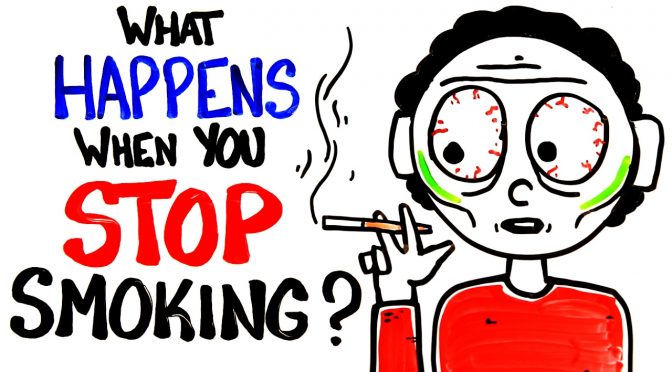The perils of smoking, a leading cause of preventable deaths worldwide, are well-documented, yet about 1.3 billion people continue to smoke actively. AsapSCIENCE’s enlightening video, “What Happens When You Stop Smoking?”, meticulously unravels the bodily changes that occur once an individual takes the bold step of quitting smoking. The transformative journey, spanning from the first few minutes to 15 years post-quitting, reveals an inspiring narrative of resilience and recovery.
Immediate Effects: 20 Minutes to 8 Hours
In the initial stages of quitting smoking, your body starts to heal almost instantly. Within the first 20 minutes, your heart rate and blood pressure return to normal as the effects of nicotine, which releases epinephrine and norepinephrine, start to wear off. Two hours in, nicotine cravings kick in, causing mood swings, drowsiness, and even sleep disturbances. After about eight hours, the inhaled carbon monoxide clears, allowing the oxygen levels in your bloodstream to return to normal.
Early Recovery: 24 to 72 Hours
The journey to recovery continues over the next few days. Coughing, surprisingly, increases 24 hours after quitting as the body tries to clear out toxins from the lungs. Simultaneously, the risk of developing various coronary artery diseases starts decreasing. At the 48-hour mark, with nicotine and its metabolites fully eliminated, damaged nerve endings begin to regrow and taste buds regain their sensitivity. Despite some peak nicotine withdrawal symptoms at the 72-hour mark, such as headaches, nausea, and emotional disturbances, the worst phase is essentially over.
Long-term Healing: 1 Month to 15 Years
As weeks turn into months, the long-term benefits of quitting smoking become increasingly apparent. The risk of developing diseases like diabetes, cancer, and cardiovascular diseases decreases significantly. Within a year, the risk of heart disease drops by half. A decade later, the chance of developing lung cancer decreases to half of that of a smoker. After 15 years, the risk of a heart attack is the same as someone who has never smoked in their lifetime. While the damage to the lungs may be somewhat irreversible, the overall health benefits of quitting smoking are enormous.
Conclusion
AsapSCIENCE’s video paints an encouraging picture for those contemplating quitting smoking. While the path of recovery has its challenges, the benefits to one’s health are undeniable and vast, making the journey worth undertaking.

